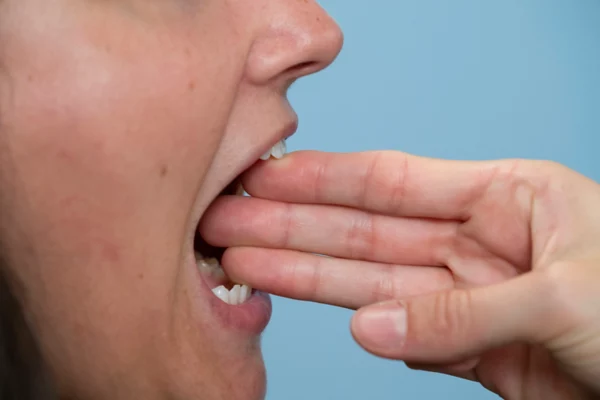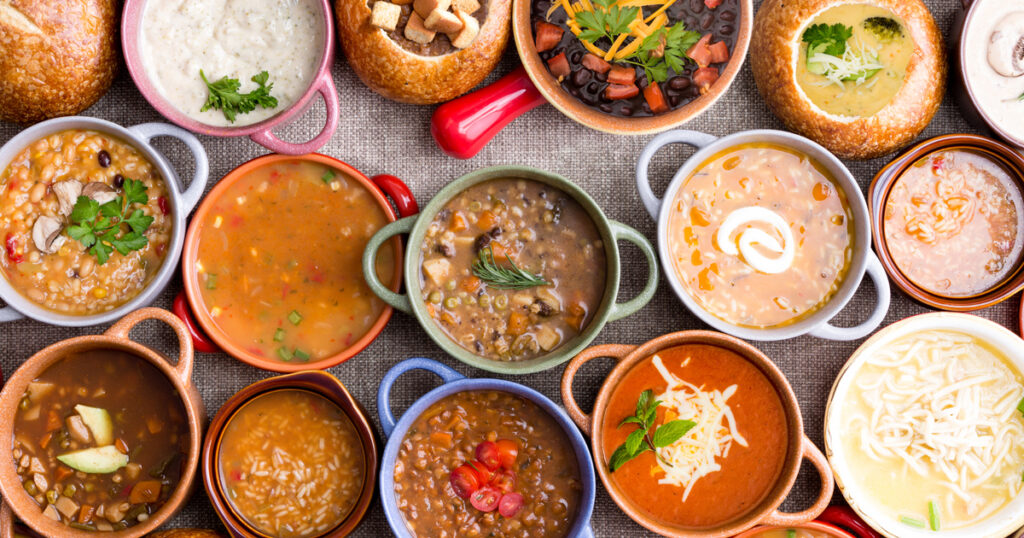The removal of your wisdom teeth is a common dental procedure that many of us have went through in our lifetime, be it to eliminate the pain that your impacted teeth are causing, or as a preventive measure. While the removal of your wisdom teeth is a relatively straightforward and painless (YES, it is painless!) procedure, the post-surgery experience can be a painful and overwhelming one.
After the surgery, you must also take great care during the recovery process as it can be challenging and require some temporary adjustments to your lifestyle. One of the most important aspect of the recovery is your diet. Having the right food can ease your discomfort and promote the healing of your surgical wound while the wrong food can lead to complications and further discomfort.
As such, it is crucial to know what are the food that you should eat and not eat to ensure a smooth and speedy recovery. In the rest of these article, we will discuss in details what food to eat and avoid, as well as answer some of the questions that people who just had their wisdom teeth removed commonly ask.
So whether you have just undergone the surgery or are preparing for it, this all to guide will serve well to provide you with the essential dietary tips to help you through your recovery process.
Reasons for a Soft Food Diet
After your wisdom teeth removal, you need time to rest and a proper diet to promote healing. The food that one have after the surgery can significantly impact the healing process. In particular, the first few days are crucial as the surgical wound is still fresh and the swelling in the area have yet to subside. Furthermore, the blood clot have yet to fully form in the cavity where the removed wisdom teeth once was.
Proper care and precaution must be taken as the wound is easily irritated and highly susceptible to an infection. During this time, you should stick to a soft or liquid diet that requires minimal chewing and can be easily swallowed. There are several reasons why a soft food diet is recommended.

Firstly, it minimizes jaw movements and reduces the strain on your jaw. After your surgery, you are likely to suffer from trimus, a temporary condition where there is limited opening of the jaws. This is because the chewing muscles connecting the jaw are contracted and inflamed, thereby restricting the motion of the jaw. Trismus is diagnosed whne you are unable to open your mouth more than 35 millimeters (mm), around the width of three fingers. A soft food diet allows you to consume food well as it requires minimal chewing, thereby reducing the discomfort that may occur due to movement of the jaw.
Secondly, soft food minimizes any potential irritation to the surgical site. As mentioned previously, during the first few days of your post-surgery, the wound is still fresh and vulnerable to an infection. If the blood clot is dissolved or accidentally dislodged from the cavity, it will lead to a painful complication called dry socket. Also known as alveolar osteitis, the complication exposes the nerve and bones to the harsh elements of the mouth. Any hot, cold, or chemical stimuli such as hot broth or spicy food can easily irritate the nerve and cause tremendous pain. While dry socket occurs in only 3 to 5% of people who had their wisdom teeth removed, the main reason for the complication is due to poor adherence to a soft food diet.
You may be interested in: Is Toothpaste Necessary When Brushing Your Teeth?
Recommended Soft Food to Eat
It is important that you eat soft and easily digestible food during your recovery, especially for the first few days after the the surgery. This will minimize irritation and damage to the surgical site. Here are some of the best soft food recommended by dentists and oral surgeons:
- Broth and Soups. Clear broth and soups are an excellent source of nutrients and help to promote healing of the wound. Soup that are thick or creamy also work well to soothe the throat as you may experience dry and sore throat after the surgery. However, consider be sure to let it cool to a warm or comfortable temperature before consuming it.
- Smoothies and Milkshakes. Similarly, soft and creamy smoothies and milkshakes are a great comforting and nourishing food option for your mouth. The coldness also helps to ease the discomfort due to the swelling. Furthermore, smoothies and milkshakes are highly customizable meaning that you can incorporate your favourite vegetable and fruits. Just be sure that they are well-blended and mixed up before consuming!
- Yogurt and Pudding. The soft and delicious yogurt are an excellent after-meal dessert as they are easy to consume and provide a wide range of nutrients such as protein, calcium, and probiotics. Protein is great for tissue repair, while calcium helps to promote strong bones and teeth. Probiotics are a type of good bacteria that helps to improve your overall gut health and immunity, thereby promoting healing of your wound. That said, avoid yogurts and puddings that are high in sugar as it can lead to the production of weak acids which erodes our enamel and cause cavities.
- Mashed Potatoes. Mashed potatoes are not only soft and easy to chew but also provide the necessary carbohydrates and potassium for your body to repair the tissue and alleviate soreness and nerve sensitivity. Consider using sweet potatoes instead as they are not only lower on the glycemic index but also contains more nutrients such as anti-oxidants, vitamins A, and C.
- Eggs. Eggs in general are a great source of protein which promotes healing of the gum tissue. Additional, some types of eggs (e.g Omega-3 eggs, vitamin-enhanced eggs) offer the essential vitamins and minerals which are good for your overall health. Furthermore, eggs are a highly versatile food and can be added to your diet in many ways. Some examples include scrambled eggs, smashed hard boiled eggs, Chinese-style steamed egg, French omelette, and eggs benedict.
- Fruits. Soft fruits such as bananas, berries, melons, and kiwis are packed with vitamins and minerals that can promote healing. Fruits that are high in water content are also an excellent choice to help you stay hydrated while providing you with nutrients. To soothe the swelling of your gums, give the fruits a cold blast in the fridge for a few hours before serving. If you are looking for processed fruits such as apple sauce or canned fruit, choose an unsweetened version as they contain less sugar and preservatives.

Food You Should Avoid
While there are food you should have after your wisdom teeth removal to promote healing and minimize irritation, there are also food you should avoid as they can delay healing and cause serious medical complications. Here are some foods you should not have during your recovery:
- Hard and Crunchy Food. Crunchy foods, such as chips, popcorn, apples, and raw vegetables can easily get stuck in the surgical site, increasing the risk of an infection. Similarly, hard food such as candy and steaks are difficult to chew and require a significant amount of force to bite. This places unnecessary stress on the jaw and chewing muscles and delays your recovery from trimus. If not consumed with care, these hard and crunchy food will lead to further swelling, bleeding and in the worst case, dry socket.
- Acidic Food. Acidic food like citrus fruits, tomatoes, and pickled foods are weakly acidic and can cause a stinging and burning sensation in the mouth. When in contact with the wound, it can cause extreme pain and infect the wound. You should also avoid the use of a straw when having soda or fruit juices as it creates a suction force that can dislodge the newly formed blood clot.
- Spicy Food. While spicy food does not cause any direct harm to your teeth, they can irritate the sensitive areas in your mouth. This slows down the healing process and increase your risk of developing an infection in the wound. Read here to find out more about when you can have spicy food.
- Alcohol. Alcohol is to be avoided after your wisdom teeth removal as it is a natural blood thinner. This meant that there is increased bleeding in the event that the wound is irritated and bleeds. Alcohol also acts as an anti-coagulant, reducing the chances of forming blood clot; this greatly increases the risk of a dry socket. Last but not least, alcohol is an inflammatory substance, meaning that it may lead to increased swelling and other post-surgical complications.
Returning to Your Diet
The list of food to avoid and its examples are non-exhaustive. As such, you should always exercise discretion and avoid other types of food that may irritate your surgical wound and delay healing. For instance, you may wonder if pancakes are on the list of food to have or to avoided. In general, you can eat pancakes after wisdom teeth removal as long as you do not feel any pain or discomfort.
The all-important question that you may have is when you can return to your original diet and start indulging on your favourite food such as pizza. After the first week, you can start gradually reintroducing semi-solid foods into your diet. However, you should still avoid hard, crunchy, sticky, and chewy foods until you feel comfortable enough to chew them without any pain. Examples of semi-solid food includes ground meat, cooked vegetables, soft pasta, and soft fish.
Here is the suggested timeline to return to your normal diet:
- Day 1 to 3: Stick to soft or liquid food that requires no chewing or biting and can be easily swallowed. Examples include hot soups, brothes, and smoothies
- Day 4 to 7: Start having food that requires chewing but are not hard to the teeth. Examples include scrambled eggs, mashed potatoes, and purees.
- Day 8 to 14: Slowly reintroduce semi-solid food into your diet. These food require more chewing and biting but should not be overly spicy or acidic. Examples include ground beef, pasta, rice, and cooked vegetables
- Day 15 and beyond: By now, your surgical wound should have healed sufficiently and you should be able to return to your normal diet. You may still experience some slight discomfort from time to time but it should dissipate and be gone within a month.
That said, everyone recovers at a different pace depending on the current state of health. It is important that you listen to your body and go at your own pace when returning to your normal diet. If you experience any pain or discomfort while chewing, go back to having softer foods until your wound has healed. Last but not least, always practice good oral hygiene by brushing and flossing regularly. Pain and swelling after the surgery should not be an excuse for skipping your daily oral hygiene habits.
Takeaway
In conclusion, the food you eat and avoid after wisdom teeth removal can have a significant impact on your recovery. Soft, nutrient-rich foods that are easy to chew and swallow can provide the necessary nutrients your body needs to heal. On the other hand, hard, crunchy, and chewy foods should be avoided, as they can irritate the wound and increase the risk of complications.
Always exercise self-care and proper oral hygiene habit after the surgery to speed up the recovery and prevent any medical complications.







